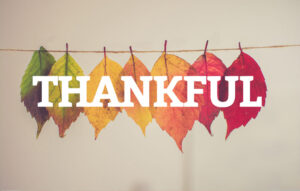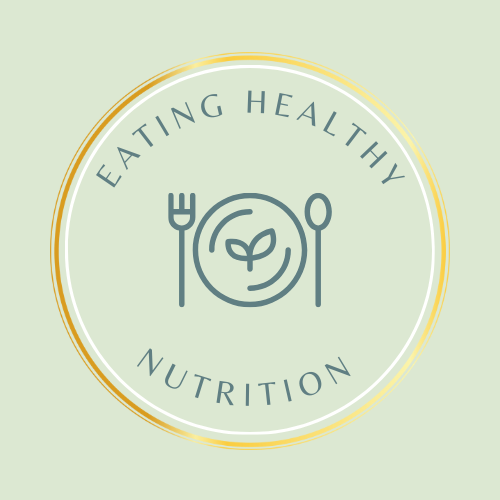
Wait, is that title correct? Thankful for food allergies?
Yes, this blog post is all about finding the positives of food allergies. It is true that food allergies are not ideal, in the least. They are hard, frustrating and scary, BUT I do feel that there is always a silver lining if you look for one.
Do I want my children to have food allergies? Of course not! Although, I do see positive qualities in my children that may not have grown in them if they didn’t have food allergies or at least not at such a young age.
EMPATHY
At a very young age my daughter’s preschool teacher pointed out that she was showing signs of empathy for others. She was able to understand how others were feeling and share those emotions with them. At 3yrs old that is an uncommon quality to have and I do give some of the credit to food allergies.
Even as a young child, those with food allergies can understand that certain food others can eat with no problem will make them very sick. This can make you feel different, but it can also open your eyes into how others may be feeling as well. Maybe someone feels different for another reason or left out or sad, etc. Empathy is the ability to share this emotion with someone and understand how they feel.
When your child has food allergies they know what it is like to be different and can more easily spot others that may feel out of place or different as well. This is a huge positive trait to have no matter what your age, but to have it as a child and be able to understand others emotions will benefit them throughout all of the friendships and relationships they will have during their childhood and entire life.
COOKING SKILLS
As parents we tend to cook a lot, but our children usually don’t pay much mind to it. They eat what is prepared (or not), but they don’t think about what is actually in the food or how it was prepared. At least I never did as a child.
Well, a child with food allergies is different. They need to know how their food was prepared and what every ingredient is, so they learn about cooking and meal prep at a young age. Again, your child may not take on a love for cooking, but the curiosity for cooking will most likely be there earlier than for a child without food allergies.
My suggestion to all food allergy parents is to embrace their curiosity and questions and get them in the kitchen with you, even as a preschooler. Let them help you with meal prep. Let them pick out ingredients or recipes. Let them experiment safely with baking and cooking.
At 11yrs old, my daughter is now cooking dinner for the family. This is not something we asked of her. She requested to do it. She is taking cooking at school and knew so much prior to the class that now she has a boost of confidence in cooking and wants to show us what she can do!
HEALTH
This is a big bonus. Sometimes it can be hard for food allergy parents and other parents to understand how a child with food allergies can be so healthy, since they are unable to eat a lot of foods. The question I heard all of the time when my daughter was younger was “Well, what can you possibly feed her?” I laugh now because our daughter is the healthiest one in the family even with 5 out of the top 9 food allergies.
She loves fruits and vegetables because they are all safe for her and she eats mostly whole foods. Processed foods tend to have at least one of her allergens in them and a lot of them are produced in a facility with nuts anyway. Again, this can be frustrating to children and to parents because it makes things harder, but if you look at the big picture your child is healthier for it.
Sometimes it is hard to figure out how to get all the nutrients in them if they have multiple food allergies. This is something I work through with my patients. There is a way, I promise. It is a detective game and there is trial and error for sure, but in the end it is worth it and your child will benefit from you taking the time to figure out how to get the needed nutrients into them.
FOOD AWARE
Due to the need to know every ingredient in their food, children with food allergies are aware of what they are consuming. They learn to read food labels as soon as they can read a book! Do you know I work with adults who have never read a food label? It is not something they ever had to do. With a child that has food allergies, it is a must.
Having a child read food labels and ask questions about ingredients, whether they are allergens or not, is a huge bonus. You can teach them early on about healthy choices. You can show them that if they can’t pronounce an ingredient they probably shouldn’t eat it. One reason is because it could contain one of their allergens and two, who wants to eat something when they don’t even know what it is or where it was derived from.
Bottom line, having food allergies has its pluses. Empathy; having a love for cooking and the skills to go along with it; being healthier than the majority of children their age; and knowing where food comes from and how it is manufactured are huge positives that we shouldn’t look past.
Reminding yourself and your child of these positives is helpful. Especially during the times that being a food allergy family may feel overwhelming and unfair. Do your best to find the silver lining and teach your children to do the same.
If you would like to be added to my newsletter, receive freebies, wellness tips plus updates on new blogs, subscribe below!
Elizabeth Pecoraro is a registered dietitian nutritionist who specializes in pediatric nutrition and food allergies as well as women’s health and habit change. She offers 1:1 counseling, meal planning services and she is currently creating an online course for parents of children with food allergies. Her “Allergy-Friendly Cookbook” will be out August 2023. For more personalized information, click here and book a session with Elizabeth.
[mailerlite_form form_id=1]
